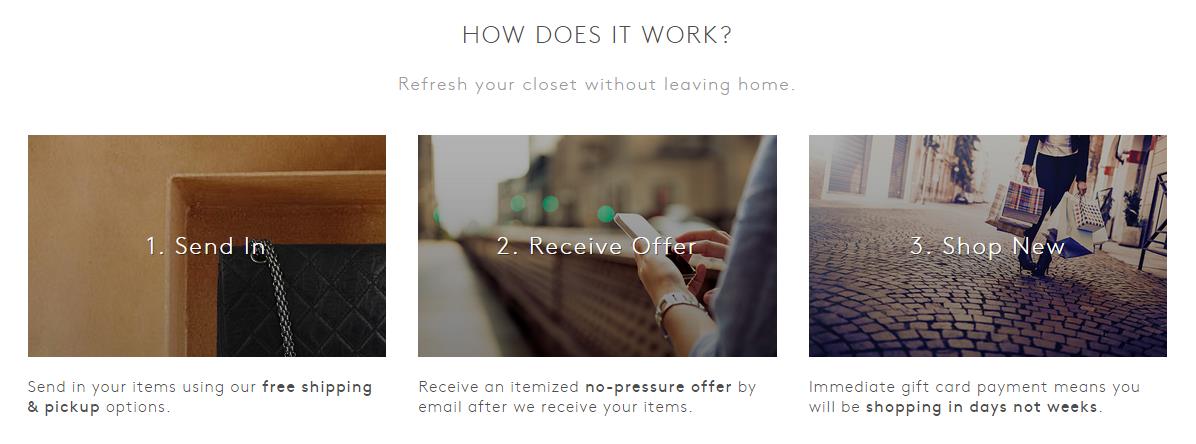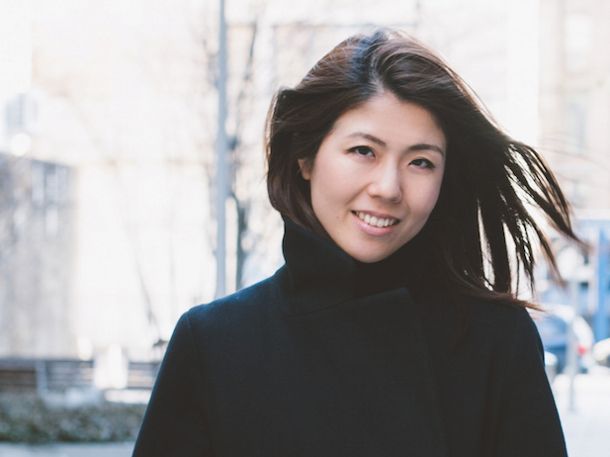Disrupting Fashion - Rie Yano, Material Wrld
Rie Yano is the co-founder of fashion startup Material Wrld, a luxury fashion trade-in site that offers gift cards in exchange for gently used designer fashions. Originally from Japan, but a citizen of the world, Rie shares with us her motivation for starting a company, her views on conscious fashion consumption, and her hopes for a rise in female entrepreneurship. Tell me a little about Material Wrld. What does your company do?We’re an online fashion trade-in service where women can easily refresh their closets by cleaning out their good-condition designer fashions to earn gift cards to shop new. We wanted to eliminate that hassle of having to manage the selling process and having to wait until things sell before you get reimbursed. We partner with retailers such as Saks, Bloomingdale's, and Barneys, to offer their gift cards. You and your co-founder both come from a corporate fashion background. What inspired you to leave the corporate world and start a company?
You and your co-founder both come from a corporate fashion background. What inspired you to leave the corporate world and start a company?
My co-founder Jie and I both came from corporate fashion. I was working in digital at Coach, and she was working at Ralph Lauren and J-Crew launching their ecommerce site. We noticed that it’s become so easy to buy new clothing with a simple click—we were part of the industry that was making that happen—but when it came to getting rid of things in our closets, we felt there really was no convenient option out there. All the services we knew felt like a chore and you don’t really make much money when you take things to thrift stores. We really wanted to use our backgrounds to come up with a way to make cleaning out your closet as easy as bringing things into your closet, and we wanted to do it with the involvement of the industry.What was the most valuable thing you learned in leaving corporate?The most valuable thing I’ve learned is how great it is to ask for help. In the startup community the founders of startups have gone through so much themselves; they are so willing to pay it forward and share their thoughts and suggestions. They didn’t teach me how to run a company in business school at Harvard or in the corporate world—you really do learn it on the ground, and as you’re learning, asking for help is the best thing to do.How did you connect with these entrepreneurs to ask for help? Did you go to networking events or…?I did belong to a co-working space called WeWork, and that really helped. We also connected with alumni and friends who are entrepreneurs to ask for introductions to people. We were definitely on LinkedIn and Twitter and other social media sites to understand who is out there. The concept for Material Wrld is rather disruptive—mixing reselling with gift cards to buy more designer items. Do you have any competitors and if so, how do you stand out from them?We think we’re quite different. There really is no one out there helping women to get rid of clothing but also connecting them to shop new—and doing so with the involvement of the industry. People have been reselling, donating, and gifting clothing for decades, so we don’t think we’re doing something that transformational there. However, we’re taking an existing model and putting a different twist to it so that women who are shopping these designer fashions can be more aware of how they can really value their goods and continue to shop new without feeling guilt, being wasteful, or having a negative impact on their environment.Do you see a trend in clothing ownership becoming more transient?Well there’s always been a lot of fast fashion and very affordable clothing that isn’t really made to last. There’s also an opposite movement called “slow fashion” or “conscious consumption” where the brands or retailer really make an effort to educate the customer to buy things that are made with quality in mind.For us, we understand that with clothing, you’re able to refresh who you are. We actually think it’s okay and natural that you’re evolving and changing, and your fashion evolves as well. Our philosophy is to make customers more aware of shopping in a conscious way. That means you can shop those new items, but make sure once you do shop them, you take great care of them and then pass them on so they don’t end up immediately in a landfill.Who is your favorite designer?Oh, that’s a loaded question! I have so many. Right now, because I’m living in New York I do find myself wearing brands like Helmut Lang and Alexander Wang. I didn’t used to wear them much when living in Latin America or Tokyo, so this is actually a great example of fashion changing as people change. I also admire sacai and J.W. Anderson. As a non-US-citizen founder, how was your visa experience? What did you find was the most helpful resource during that experience?This is a challenging one. Because of my visa situation I wasn’t able to start a company when I wanted to. I had to carefully plan out the transition from corporate to entrepreneurship. I got the help of other international entrepreneurs who had already received their H1B visas and I talked with a handful of them to find out the requirements. I think those immediate suggestions from the entrepreneurs were the most helpful resource for me. There’s so much on the Internet, but nothing really feels relevant to you. So I tried to find internationals who were from my grad school who were starting companies in New York, because we had similar backgrounds.Who is your biggest inspiration?
In a way, my fiancée is my biggest inspiration. He is an entrepreneur as well and has never worked for anyone other than himself. Because of that, it’s in his nature to hustle for everything; he’s so resourceful in solving problems that are pretty common for entrepreneurs. That really has inspired me. This new startup he’s working on right now has a big vision to help in the world of education. There is a larger mission beyond just the company. When I see that, it really inspires me and makes me want to try to improve the way I am or the way I think about what to do. We don’t start a company just to be successful; there’s something greater that we’re aiming for in what we create.What do you think is the best way to encourage more female entrepreneurship?The best way to encourage more female entrepreneurship is to have more success stories come from female CEOs and entrepreneurs. The more examples there are, the more young female aspiring entrepreneurs will have a goal or something they can envision becoming. For me, having a Japanese education and upbringing, I didn’t even think about entrepreneurship until I went abroad; it’s not embedded in our culture to take risks. I only wish I had realized sooner that I had the option to run my own company rather than going to work for one.Are there any fashion trends you see coming to NYC which you are particularly excited about?I’m sure you’ve seen the big trend over the past year of fitness and fashion merging. We see luxury brands starting lines that are catered toward women who want to do some yoga but also look great. I personally love mixing comfortable clothing with classic or elegant pieces, so I like the fact that it’s okay to wear sneakers to meetings. In terms of trends in New York, I actually think that there are fewer and fewer trends you can identify on the streets, since there are so many more digital influencers setting microtrends on the Internet via Instagram and blogs. New York is also full of so much diversity—you don’t find consistency in the way people dress here, which is what I love about this city.

